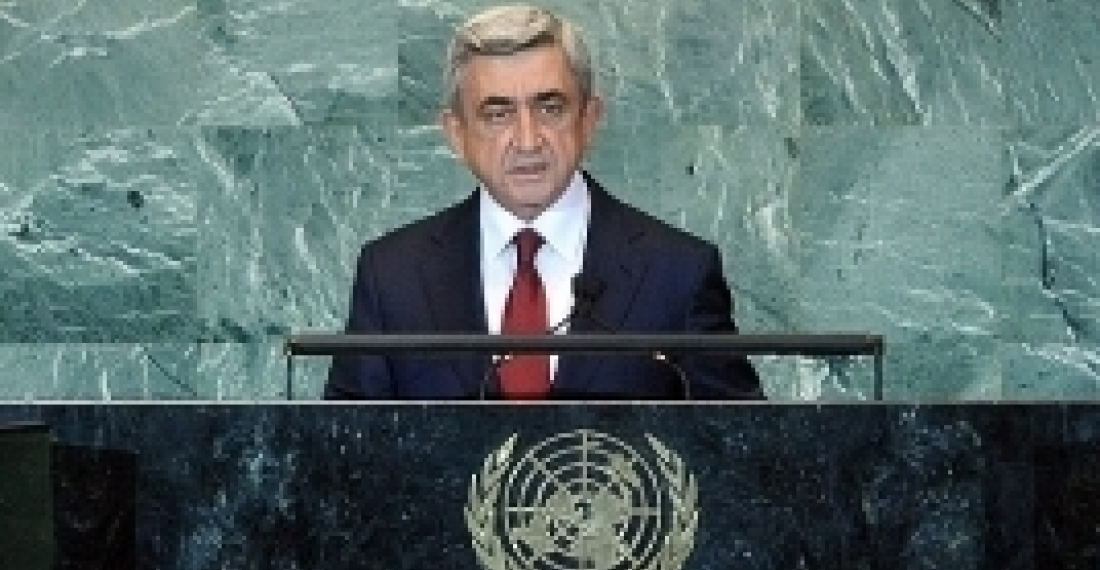Armenia is on the right path, a path that is irreversible, Serzh Sargsyan, the President of the Republic of Armenia, said during his speech in the 66th session of the General Assembly.
"Two days ago, the Republic of Armenia celebrated the 20th anniversary of its independence. In September 1991, Armenia restored its independence, realizing the dream of the Armenian people and reuniting with the Family of Nations.
In the realm of history, 20 years may seem like a short period, but it has served for the present generation as a period of great change, construction of independent statehood, and a renewed perception of their role and place in the world. I wish to take the opportunity from this esteemed rostrum to express my gratitude to all the states, peoples, and individuals that have supported us in these 20 years of development and construction of statehood. Freedom, peace, and democracy are our choice, and we are committed to this path. We are proud of our achievements today.
In two decades, the Republic of Armenia has implemented a wide-scale program of constructing statehood. Much has been done in the fields of democratization, human rights and economic reforms, the establishment of the rule of law and liberal economy. We have many achievements, but much still remains to be done," the Armenian President said.







